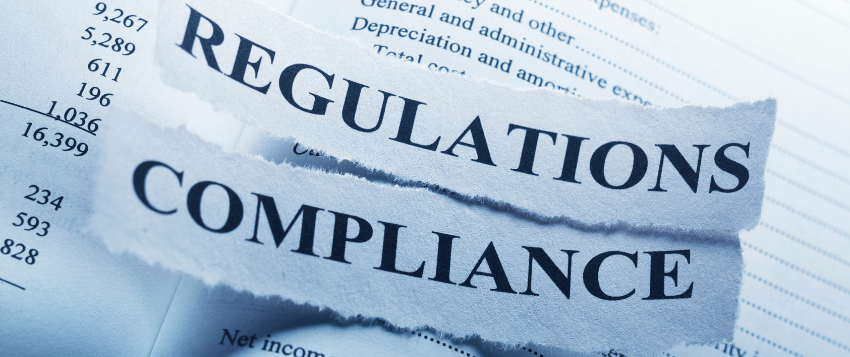The appointment of Diella, Albania’s AI minister, has reignited global debate about what happens when technology enters the political arena. Part 2 examined how algorithms can enhance efficiency yet expose governments to new risks like bias, hacking, and manipulation. But the deeper challenge lies in what AI means for democracy itself. Who is accountable when decisions are made by machines? Can democratic legitimacy survive when authority is partly automated? Is the idea of corruption-free governance truly progress, or just a modern disguise for old inequities?
In this final part of the series, the focus shifts from technology to governance and ethics. Drawing on insights from Mr Trevor Noah Ncube, Head of the Regenesys School of Public Management, this analysis explores how AI in government intersects with constitutional law, public trust, and the moral foundations of leadership.
Democracy in the Age of Automation

Albania’s Diella represents both potential and peril. The experiment has shown how AI can process large-scale data efficiently, but it has also blurred the lines of democratic accountability. In contrast, South Africa must take a more measured path.
According to Ncube, AI can be integrated into government systems as an advisory and analytical tool, but ministers must always remain human. AI could, for instance, assist municipalities in evaluating tenders and reducing corruption similar to that seen in Gupta-linked contracts. The technology can support human judgment, not substitute it. South Africa’s role, therefore, is to learn from Albania’s ambition while ensuring that humans remain the moral and constitutional decision-makers.
Constitutional and Institutional Realities

While Albania’s move sparked fascination, it also exposed constitutional tension. In South Africa, such an appointment would be impossible under current law. The Constitution requires that ministers be natural persons, accountable to Parliament and to citizens.
However, Ncube believes that AI can still be formally embedded within public administration through an advisory council system under the Department of Public Service and Administration (DPSA) or the State Information Technology Agency (SITA). Such systems could automatically monitor compliance with financial management legislation such as the Public Finance Management Act (PFMA) and Municipal Finance Management Act (MFMA).
This model aligns with international regulation. The EU AI Act categorises systems like Diella’s as “high risk” and requires robust oversight, transparency, and risk management. South Africa’s opportunity, Ncube argues, lies in reforming intelligently strengthening governance rather than attempting to replicate Albania’s radical experiment.
Ethics and Boundaries of AI in Government

The ethical limits of AI must remain clear. In Albania, Diella manages procurement but does not make moral or political decisions. South Africa should adopt the same boundary. AI can automate administrative processes such as licensing, SASSA grant applications, or hospital queues, but it cannot decide on issues that affect human rights, resource distribution, or moral judgment.
A practical example lies in the Department of Home Affairs, where AI could be used to accelerate passport and ID applications and reduce opportunities for bribery. Efficiency gains are possible, but accountability must stay human. As Ncube notes, AI should complement elected leaders rather than substitute them. The Batho Pele principle which means people first, must continue to guide the ethical use of technology in governance.
Transparency, Participation, and Accountability

In Albania, one of the main criticisms of Diella has been a lack of transparency and mechanisms for appeal. This raises a crucial point for South Africa: citizens must never be excluded from questioning government systems simply because decisions are made by algorithms.
Ncube proposes that AI should enhance participation, not diminish it. For instance, real-time dashboards could display data on housing allocations or municipal budgets, while ward committees or civil-society groups validate the outcomes. SARS already offers a local example of balance, using AI to detect fraud but maintaining human oversight.
The OECD’s Digital Government Review supports this view, finding that trust in algorithmic governance depends on visibility and citizen recourse. Transparency, in this sense, is not a technical feature, it is a democratic safeguard.
Preventing Power Centralisation and Inequality

Concentrating procurement authority under a single AI system, as seen in Albania, risks creating new forms of centralised power. South Africa should instead adopt a federated approach, distributing AI tools across local, provincial, and national levels.
Ncube points to practical examples: the City of Johannesburg could use AI to detect water leaks, while other municipalities might apply it to monitor procurement or waste management. Decentralisation ensures that smaller towns and rural areas benefit equally rather than leaving technology in the hands of metropolitan elites.
He also cautions that unless inclusivity is deliberate, AI may reinforce structural inequality. Systems trained only on English-language data or urban contexts could disadvantage communities whose realities are underrepresented. AI in South Africa must therefore be designed with African languages, rural data, and diverse cultural contexts to ensure that it dismantles rather than deepens inequality.
Readiness, Regulation, and Leadership

Albania’s success with Diella followed years of investment in its e-Albania digital platform. South Africa’s readiness, however, remains uneven. Ncube argues that the gap can be bridged through pilot projects. For example, eThekwini could test AI to predict sewerage leaks, while Gauteng hospitals could use it to streamline patient queues.
He also advocates for establishing a Public AI Authority to regulate how AI is deployed across government departments. Similar to ICASA or the Public Protector, this body could audit algorithms, investigate complaints, and publish reports on fairness and transparency. Such oversight, he believes, would ensure that AI operates within the values of constitutional democracy and the Batho Pele principles.
Yet none of this can succeed without capable leadership. South Africa needs leaders who understand AI’s promise but also its risks, leaders willing to engage unions, educate citizens, and communicate openly about both progress and failure. The success of AI in governance, Ncube stresses, will not depend on machines but on the integrity and competence of the people guiding them.
Lessons for Africa

Diella’s appointment in Albania has been called political theatre, but it provides valuable lessons for Africa. South Africa and other African nations should adapt, not imitate. AI could be piloted in public procurement to reduce corruption at entities such as Eskom or within municipalities. A uniquely African version of “Diella” could serve as an advisory system that strengthens transparency and accountability rather than replacing ministers.
The experiment in Albania shows that bold innovation attracts attention, but success depends on governance. As Ncube notes, the real challenge is not whether governments will use AI, they will but whether they can build ethical, institutional, and civic frameworks that keep people at the centre of power.
The technology will continue to evolve. But integrity, empathy, and accountability must remain the foundation of leadership.







